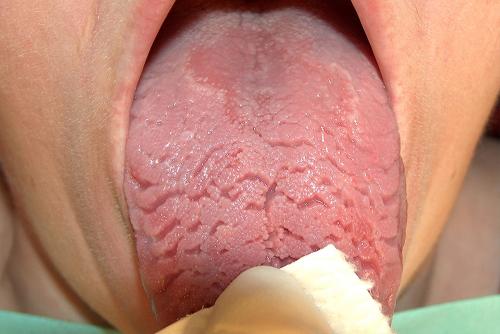3. Cracked or fissured tongue

Visible cracks and deep grooves on the tongue could be a harmless condition called fissured tongue. However, it’s sometimes associated with conditions like psoriasis or dehydration.
What to do:
- Keep your mouth well hydrated
- Maintain good oral hygiene to avoid food debris getting stuck in the grooves
- Avoid spicy, salty, or acidic foods that can cause discomfort
- If the cracks become painful, consult a dentist
4. Smooth, pale tongue
A tongue that appears unusually smooth and pale might be a sign of iron-deficiency anemia or a lack of folic acid and vitamin B12. These deficiencies can reduce oxygen supply in the blood and affect overall energy levels.
What to do:
- Add iron-rich foods like spinach, red meat, lentils, and pumpkin seeds to your meals
- Eat foods high in vitamin B12, such as eggs, dairy, and fortified cereals
- A blood test can confirm deficiencies, and supplements may be needed under medical guidance
Final tip:
Your tongue is like a window into your internal health. If you notice persistent changes, it’s best to seek medical advice. Don’t ignore what your mouth is trying to tell you.
Pages: 1 2

